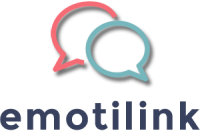HIPAA Notice of Privacy Practices
This notice describes how psychological and medical information about you may be used and disclosed and how you can get access to this information.
Please review the below carefully and completely.
Privacy Policy for Emotilink
Last Updated: May 13, 2024
Effective: May 14, 2020
This privacy policy for Emotilink explains our commitment to safeguarding your personal and health data while using our therapist platform. In addition, you can learn more about our services on our About Us page.
Thank you for considering Emotilink, a telemental health platform and digital marketplace where users like you can search for and connect to independent, licensed mental health professionals using our secure and HIPAA-compliant mobile application.
We respect your privacy and are committed to protecting it through our compliance with this policy. Therefore, by registering as a user and using our platform, you consent to the collection, use, and storage of your information as outlined below.
You Must Be an Adult to Use the Platform
Our platform is not intended for individuals under the age of majority in their state. In fact, we do not knowingly collect data from children under 13 (or under 16 in California). If we collect such data in error, please contact us at info@emotilink.com so we can remove it immediately.
What Information We Collect About You
We collect only the information necessary to deliver a secure, real-time telemental health experience. For example:
- User-created login credentials (email, password, display name)
- Contact information (name, phone, state, email)
- Payment details (name, billing address, credit card info — collected only at booking)
- Emergency details (name, address, contact info, GPS location for emergencies only)
- Session, scheduling, and transaction history
- Legal notices and agreements
- Optional: starred providers, photo, ratings, and communication records
- Technical log files and encrypted location data (emergency only)
What We Share with Providers
We share only your display name, state, and optional photo with providers — unless an emergency arises. As a result, other personal data remains private unless you choose to disclose it during your session.
How We Store Your Information
We encrypt Protected Health Information (PHI) in transit and at rest on secure Microsoft servers. In addition, we process payment information through PCI DSS-compliant Finix Payments. Our HIPAA-trained staff limit access to authorized personnel only.
How to Terminate Your User Account
We automatically delete accounts inactive for more than 12 months. Alternatively, you may delete your account anytime in the mobile app. If you wish to reactivate, you can submit a request via info@emotilink.com.
How and the Extent to Which Users Can Delete Their Information
We handle data deletion requests according to HIPAA requirements. For example:
- App downloaders (no account): No PII collected.
- Users with accounts but no bookings: Eligible for full deletion.
- Users with appointment history: We retain data for 10 years under HIPAA.
How We Secure Your Real-Time Communications
We use WebRTC with AES 256-bit encryption and HMAC verification for private, encrypted video calls. As a result, no sessions are stored or decrypted by Emotilink. To learn more about HIPAA compliance, visit HHS.gov.
When We Can Disclose Your Information
We disclose your information only under specific circumstances. For instance:
- With your written authorization
- To comply with legal orders or obligations
- During business restructuring or acquisition
- To HIPAA-compliant third-party vendors
Your Providers’ Responsibilities
Each provider is a HIPAA-covered entity and must furnish their own Notice of Privacy Practices. Consequently, you’ll receive these notices with appointment confirmation emails.
What We Share in the Event of an Emergency
If a provider triggers an emergency protocol, we share your name, home address, emergency contact, and last known GPS location to help ensure your safety.
Contact Us
Email: info@emotilink.com
Address: Emotilink, LLC
222 Merchandise Mart Plaza, Suite 1230
Chicago, IL 60654
